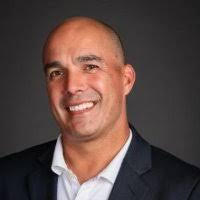
Vice President for Finance/CFO of the University of Bridgeport
Bill Guerrero is an innovator in education, with more than 20 years of experience in higher education administration. He currently serves as the vice president for Finance and CFO at the University of Bridgeport, a private university in Bridgeport, Connecticut. Here, he leads efforts for effective long-term financial sustainability, planning and annual budgeting, finance, accounting, treasury and student financial services. Bill is also a renowned national speaker and
frequent podcast guest on topics such on digital transformation, change management, risk management, entrepreneurship, non-tuition revenue, and the overall financial sustainability and business model of higher education.
Tell us about your role with the University of Bridgeport (UB). What impact do you hope to make?
My primary role is to ensure financial sustainability for this terrific university. My hope is to return UB back to its glory days, with so many proud alumni, as one of the flagship universities in the State of Connecticut and be something that City of Bridgeport and the surrounding community can be very proud of.
How did you become interested in the education space?
I was a first-generation college student raised by a single mother of five children. If it was not for athletics, I would not have thought of college as an option. The opportunity afforded me allowed me to become a role model for my nieces and nephews and a break a cycle for social mobility. My interest therefore in working in the education space is to give back and help enhance those opportunities for others by making colleges/universities accessible and affordable, primarily through entrepreneurship and innovation.
What role has entrepreneurship played in your career?
I was exposed to entrepreneurship early in my life when my mother left her corporate job at Xerox as an executive secretary and started a day care. Doesn’t sound that innovative, but back in the 1980’s when dual income families were becoming necessary, her understanding the basics of problem, solution, and expertise yields a solid business model. Watching mother everyday managing customers (families), federal and state rules and regulations, and no paid time off for example, as most entrepreneurs understand well. This background has grounded me in my work ethic, focus on solutions for customers that make money, and overall risk tolerance. I used this background in my academic background to be part of a team that won the first State of CT business plan contest among all of the higher ed institutions back in 1999 during my MBA program. I then used these skills to revive or start non-tuition businesses within higher education to keep the costs down for students. Plus, I was an adjunct faculty teaching entrepreneurship and writing business plans for 13 years yielding numerous successful businesses and future entrepreneurs.
Why is entrepreneurship and innovation important to you?
I am not a huge fan of “that is what we have always done” in higher education. But change is not easy anywhere. But with the Black Swan of the COVID-19 pandemic, and then the demographic cliff and value proposition challenge of higher education, providing an educational experience that students/families are willing to invest in requires a lot of adjustments to what is the best business model to ensure financial sustainability. My belief is that you don’t succeed long-term buy just cutting costs. That only taxes the good employees that remain and decrease the service levels. My alternative view is through innovation and entrepreneurship an organization can actually respond proactively that will meet the needs of students and preserve jobs. This requires a lot of collaboration which I think it is very positive. There are so many smart people in higher education within the faculty, staff, and student ranks with terrific ideas and solutions to problems.
Tell us how you have contributed to innovation in education.
There are so many examples at the various institutions that I have worked at, plus innovation can be defined many ways. But I will list a few related to dining services. Back in the early 2000’s implemented the first all vegan/vegetarian café on a college campus in the U.S. before it was a standard need meeting the needs of the populations; established the highest revenue generating licensed Starbucks on a college campus through community building and increased student retention; and significant sales; and self-operated the $20M dining program that was typically contracted to a large 3 rd party. Last example, which is not food service related, is Purchase Park 2 Fly, a discount airport parking business, that was started from scratch and generated $1M in revenue in the first year and generating $250K in profits that went directly to student financial aid.
Can you describe a time you took a risk? Did it pay off? If not, what lesson did you learn?
I am wired a little different where I am not very risk-adverse. My mother demonstrated that to me through her business. To raise five children, it was desperation leads to inspiration. I have a picture in my office titled “risk.” It is a picture of baseball player stealing second base. This is relatively unusual for a CFO, but I believe in calculated risks to supports innovation. But failure doesn’t scare me. I was a “relatively” good baseball player and as in most sports, you can’t play hesitant. If you hesitate stealing a base, you will be out. But also, to be a good baseball player you fail 70% of the time. My best example of risk besides changing jobs professionally numerous times, is marrying my wife, Maggie Guerrero ’94. We knew each other for a long time and eventually got married. Some may say not risky, but it was the best decision in our lives.
How did UConn prepare you for where you're at today?
UConn prepared me professionally and personally. I had a lot of failure at UConn but the opportunities available allowed me to persist. My baseball career didn’t work out the way I expected. Instead of transferring, I persisted in other interests. My major was Communications, but I was able to learn the basic skills in business and finance to realize a professional path forward ultimately becoming a CFO. I became a Resident Assistant and it established a strong foundation for my higher education career without even knowing it. I joined a group of lifelong friends and we started a fraternity (TKE). I did not become my fraternity’s President but became a leader in the Interfraternity Council helping policy on a larger scale. I also became a successful D3 college baseball coach, due to my experiences. It allowed me to recruit successfully based on my personal experiences.
What is your favorite UConn memory?
Of course, the UConn basketball games. First games at the Fieldhouse and then with the opening of Gampel Pavilion. I would add Yale Bowl…where I hung out with my future wife and friends. Many others…. but we leave it at these traditions.
What advice do you have for today's students or emerging entreprenuers?
Start as soon as you can. Fail as soon as you can. The risk will be minimal. The resources available are so much greater than before. So many people…. faculty, staff, alumni, etc. that are willing to help. It will never be perfect, but you need to take that leap before life takes over such as a family, mortgage, and saving for retirement, and then the risk factor becomes more apparent.
Describe a professional moment you are most proud of, and why?
My favorite professional moments are when former employees or students I either supported, taught, or coached, stay in touch for professional and personal guidance. As humble brag…my proudest moments are being invited to the many weddings and being consider influential in their lives, and the acknowledgment that they will pay it forward.
What/who has been the biggest influence in your life and career?
Not surprising, it is my mother for the various aforementioned aspects. Her resiliency, work ethic, creativity, problem solving, and being a great mother is bar none. Her impact on my life and career decisions permeates both aspects of my life.
What is next for you?
I have learned early on that life is short. I take each day and try to do my best to make a positive impact and not assume there is a tomorrow. My current focus is just that at the University of Bridgeport. To lead it to perpetual success.
How do you see higher education evolving in the next five years?
Unfortunately, I see a lot of consolidations outside the top 150 private college/universities and top 50 state universities. The demographics and the rising cost of attendance make it really difficult to match the supply and demand in the current paradigm. Unless there are some changes in some federal support to make it more affordable, and a repositioned value of an education, it will be difficult to remain status quo. There are many terrific examples of innovative higher education institutions, but will others have the same entrepreneurial and innovate risk tolerance to make the necessary changes to survive and thrive.
What are you passionate about outside of work?
Not surprisingly I am a very passionate UConn Athletics fan. I have season tickets to baseball and football and attend as many women and men’s basketball games as possible. I am also a die-hard Yankees fan. Besides these passions, my family lives pretty simply and we are passionate about giving back to our community, lifelong learning, and of course taking care of my rose bushes!
